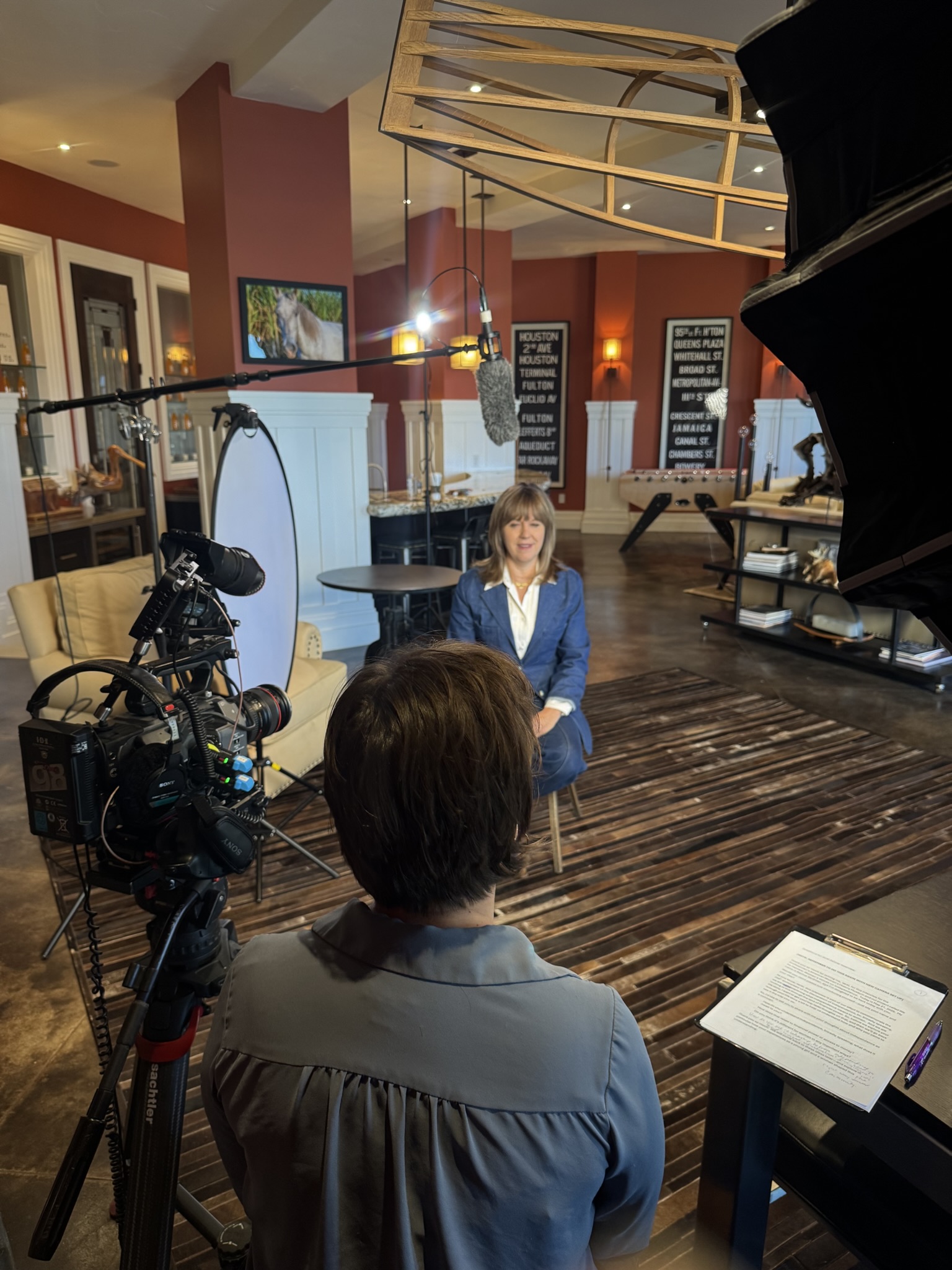On the Road to Independence: Field Notes From ‘We Do Declare’
Go behind the scenes with curator Rachel Seidman as she interviews women for “We Do Declare: Women’s Voices on Independence,” our oral history and education project exploring how women have sought to increase their economic independence over the last 50 years

This summer I have been travelling around the country, meeting amazing women who have generously agreed to participate in our oral history project We Do Declare: Women’s Voices on Independence. They have set aside time, opened their homes and offices, let us rearrange their furniture to accommodate video cameras and lights, and most importantly, shared their stories, insights, experiences, and analyses of the history of women’s economic independence. I am so grateful to them and cannot wait to share their voices with you over the next year. In the meantime, we wanted to give you a behind-the-scenes look at how We Do Declare is unfolding.
Barbara Dudley and the Fight for Displaced Homemakers
/https://tf-cmsv2-smithsonianmag-media.s3.amazonaws.com/filer_public/9d/eb/9deb8551-1eb0-42fa-92ce-1edd92b15e23/airplane_window_view_of_santa_barbara.png)
As part of my background research on important turning points in women’s economic power over the last fifty years, I read an article by historian Lisa Levenstein about the Displaced Homemakers campaigns of the 1970s (1). Mostly forgotten in traditional retellings of the women’s movement of the time, the Displaced Homemakers campaign was an important effort to support older women who, after decades of homemaking, suddenly faced economic independence following divorce or widowhood. I knew that I wanted to include this story in the We Do Declare project, but the two leaders of the campaign, Tish Sommers and Laurie Shields, both died years ago.
Levenstein mentioned a young lawyer, Barbara Dudley, who had worked with Sommers and Shields. It was Dudley who, just a few years out of law school, wrote the California state legislation and then federal legislation that led to hundreds of programs and centers opening up around the country where older women could access job training and other forms of support. I searched online and found one Barbara Dudley in Portland, Oregon, who was associated with the Portland State Center for Public Service and had recently given a talk at the League of Women Voters; something told me that was probably her. I reached out to both organizations and asked them to forward her my email. A few days later she wrote back to me!
Over the following weeks, I talked with Barbara on the phone, and she sent me an unpublished memoir she had written. By the time I showed up on her doorstep, I knew a great deal about her, and I was excited to have the chance to hear her story unfold and to ask her more questions.
Jacki Hoffman Zehner and Women’s Financial Wellness

While Barbara Dudley shared her experiences and insight into advocating for policy change for women in the 1970s, other interviewees, like Jacki Hoffman Zehner, help us see how women’s economic agency has been developing in more recent decades. Jacki Hoffman Zehner was the first female trader to be named partner at Goldman Sachs, went on to lead Women Moving Millions, and now runs SheMoney, an organization dedicated to what she calls women’s financial wellness. Jacki had been recommended to me by Heather McCullough, whom I had reached out to as an expert in the field who runs a program at the Aspen Institute on women and the economy.
After several emails and conversations over Zoom, I interviewed the warm and welcoming Zehner at her home in Park City, Utah. She shared powerful stories with me and showed me her impressive collection of Wonder Woman memorabilia. I thoroughly enjoyed hearing about her path from being a teenage bodybuilder to encouraging women of wealth to tap into their power to change the world. As with all my interviewees, I loved hearing how her own family, coming of age, and experiences shape her approach to increasing women’s financial power and using it to make a difference.
The Intersections of Empowerment and Community with Bo Thao-Urabe
/https://tf-cmsv2-smithsonianmag-media.s3.amazonaws.com/filer_public/f0/91/f091e2cd-b7c4-4951-9239-b881878dd954/bo_thao-urabe.jpeg)
I met Bo Thao-Urabe at a woman-owned co-working space in Minneapolis and was mesmerized by her stories of working to empower women in Minnesota’s Hmong community. She talked about the profound impact her mother, a Hmong refugee from Laos, had on her. Thao-Urabe shared that her mother had a secret bank account in which she kept her own money because she had seen what could happen when women did not have some amount of economic independence.
Thao-Urabe’s decades of interrelated work to bolster women’s economic empowerment and to prevent domestic violence at the local, national, and international level is inspiring, as are her insights into how “independence” is in fact not created by individuals, but by the systems and communities in which we operate.
My interviewees bring a wide variety of life experiences and backgrounds to their work, and their perspectives help us understand women’s economic independence in the context of recent history. I look forward to sharing these and many other women’s voices with you over the coming year!
Notes
- Lisa Levenstein, “‘Don’t Agonize, Organize!’: The Displaced Homemakers Campaign and the Contested Goals of Postwar Feminism.” The Journal of American History 100, no. 4 (2014): 1114–38.
